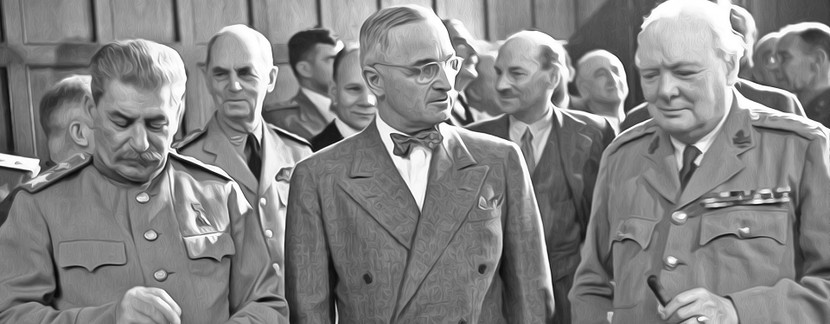On This Day: March 5th, 1946
We've all heard the age-old saying; 'those who do not learn from history are doomed to repeat it.' And though this statement doesn’t always hold true, it does hold a lot of influence. Case in point, on this day 73 years ago, a speech was made that would impact the course of the world for years to come.
A Date Remembered
On March 5th, 1946, Winston Churchill traveled by train with then U.S. President Harry Truman to the little known town of Fulton, Missouri. Though it seemed an unlikely place to find two world leaders, it was Truman’s invitation for Churchill not only to visit his home state but to speak before a packed gymnasium at Westminster College.
Less than a year removed from serving as the Prime Minister of England, who led the British Empire to victory in World War II, Churchill seized the moment to resurrect his standing among the leaders of the world.
What Was Said
During his speech, Churchill shared with the West a growing distrust for Joseph Stalin and the Soviet Union, and within one statement yielded two words that would echo through time. He said of Russian influence in the region, “From Stettin in the Baltic to Trieste in the Adriatic, an iron curtain has descended across the continent.” Though the former leader was not the first to use the phrase in describing the rising concerns of Communism back then, he was certainly the most famous to do so. In fact, not only did Churchill’s comments at the tiny Midwestern school essentially end the failing post-war alliance between the United States, England and the Soviet Union, it is widely considered what started the Cold War between the U.S and its Russian counterparts.
It's Historical Significance
To this day, the words iron curtain are synonymous with these iconic leaders, the nations they led and a world that hoped for the best and feared the worst through them. One of the longest wars in modern time, the 45 year Cold War that followed this day in history was, in one respect, a standoff between global powers in a race to become the sole planetary superpower.
Indeed, there was military conflict surrounding them for decades. But bypassing nuclear war, after it seemed imminent, was a testament of the United States and the Soviet Union’s willingness to compromise and seek peace through their differences.
Nevertheless, Churchill’s words always serve as a reminder that not only does what one say carry value, but such value can carry a lasting legacy, and with them, consequences that stand the test of time. And since history, in part, seems destined to repeat itself, perhaps changing its narrative will deliver better results. Hence the saying; choose your words wisely.
Recent Posts
-
Nov 26th 2023
Become a QuickStudy
Becoming a quick study involves developing efficient learning strategies and adopting certain hab … -
Apr 14th 2023 | Posted by W. Ayers
Earth Day 2023 - Invest In Our Planet
A collective call to action spanning the four corners of the world for more than 50 years, Earth Day … -
Dec 2nd 2022 | Posted by A.Nasti
10 Life Lessons You Won't Learn In College
Teachers and textbooks can help you prepare for your career, but what about the life lessons they do …




